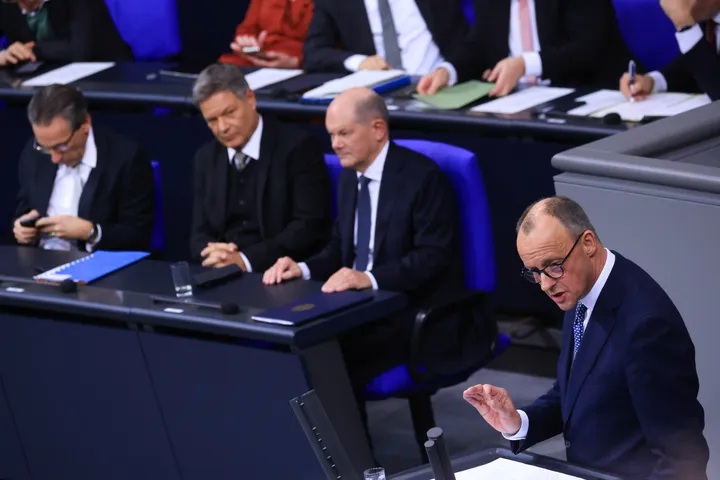 In an unprecedented move, Germany’s President has dissolved the Bundestag, the federal parliament, triggering a call for snap elections. This decision follows mounting political instability and deadlock within the government, leaving the nation facing a period of uncertainty.
In an unprecedented move, Germany’s President has dissolved the Bundestag, the federal parliament, triggering a call for snap elections. This decision follows mounting political instability and deadlock within the government, leaving the nation facing a period of uncertainty.
The dissolution comes after months of failed coalition talks, with no clear majority emerging from the fragmented political landscape. President Frank-Walter Steinmeier made the announcement in a televised address, urging political leaders to respect the democratic process and ensure a smooth transition to new elections.
Given the current impasse, I believe that it is in the best interest of the German people to seek a fresh mandate, Steinmeier stated, acknowledging the frustration many citizens feel towards the gridlock.
Political analysts suggest that the upcoming elections could reshape Germany’s political future, potentially leading to new alliances or even a shift in the balance of power. The snap election, set to take place in early spring, will be closely watched both within Germany and by international observers.
This marks a significant moment in German politics, as the country grapples with issues ranging from economic challenges to growing social tensions. The upcoming vote will be seen as a critical test for Chancellor Olaf Scholz’s government and could lead to a reconfiguration of the political landscape in Berlin.
The move also raises questions about the stability of Europe’s largest economy, which has faced ongoing challenges due to global economic pressures, internal divisions, and the aftermath of the COVID-19 pandemic. However, many hope that a fresh election could restore confidence in Germany’s democratic institutions and offer a clear path forward.
The snap elections are expected to be a highly competitive race, with several major parties jockeying for power and voters expressing dissatisfaction with the status quo.

